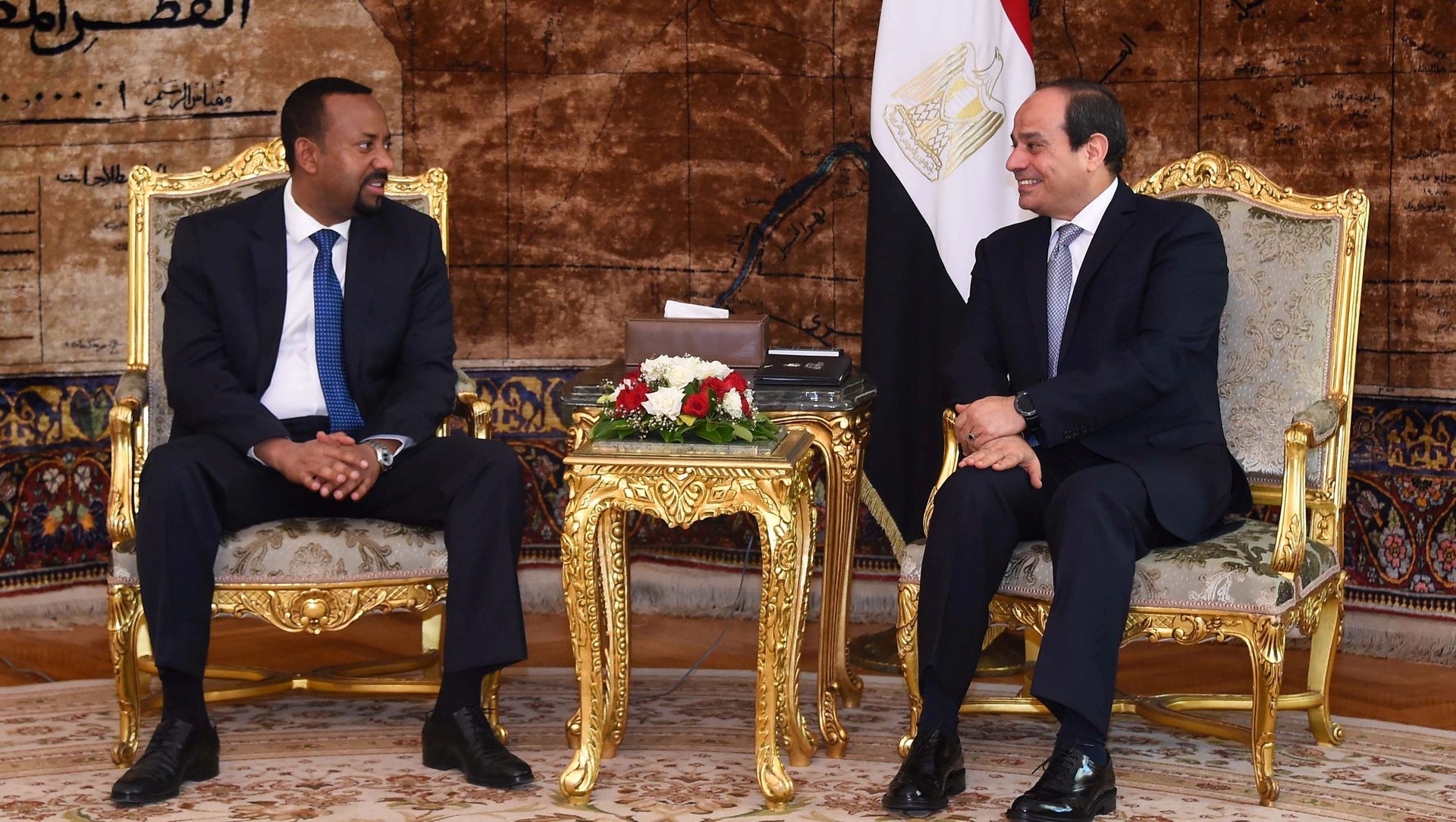Ethiopia’s prime minister has promised not to “harm” Egypt’s share of the Nile
Ethiopia’s prime minister has sworn not to “harm” Egypt’s share of the Nile, breaking the deadlock in talks over control of Africa’s longest river.


Ethiopia’s prime minister has sworn not to “harm” Egypt’s share of the Nile, breaking the deadlock in talks over control of Africa’s longest river.
During a trip to Cairo over the weekend, prime minister Abiy Ahmed said the countries made progress on sharing the Nile’s waters and would put together an agreement to set up a mutual fund for infrastructure development. In a joint press conference, Egyptian president Abdel Fattah al-Sisi also made Abiy swear to God that he won’t “hurt” (0:27 in Arabic) Egypt’s quota of the waters, which the premier repeated amid laughter and applause from the attendants.
“My government and my people have no intention to harm the people of Egypt and the government of Egypt. We will work with the people of Egypt in any area,” Abiy said.
Abiy’s charm offensive comes just months after talks reached an impasse over a mega-dam Addis Ababa is building along the headwaters of the Blue Nile, one of the Nile’s two major tributaries. The $4.8-billion Grand Renaissance Dam will be Africa’s largest hydroelectric dam and will produce 6,000 megawatts of electricity. As a downstream nation, Egypt says the dam will disrupt the flow of the Nile to its almost 100 million people, potentially crippling agriculture and industry. This will also compound other problems threatening the Nile, including climate change, population boom, urban sprawl, and rising sea levels, which lead to saltwater intrusion.
His trip to Cairo is part of Abiy’s push to open up the political and economic systems in Ethiopia. Since coming to power in April, he has announced domestic, foreign, and pro-business stances that could radically reset the trajectory of Africa’s second-most-populous nation. Abiy also called for peace with long-time rival Eritrea, secured release of thousands of Ethiopian detainees lingering in Egyptian and Saudi prisons, and promised to oversee a foreign policy based on mutual interest and mending strained ties in the region and beyond.
Taking an emollient approach to differences and dealing quickly with both pressing domestic and foreign stability concerns will only help solidify Abiy’s influence, says Ed Hobey-Hamsher senior Africa analyst at risk consultancy Verisk Maplecroft. “This bodes well for Abiy’s political and economic reform program.”